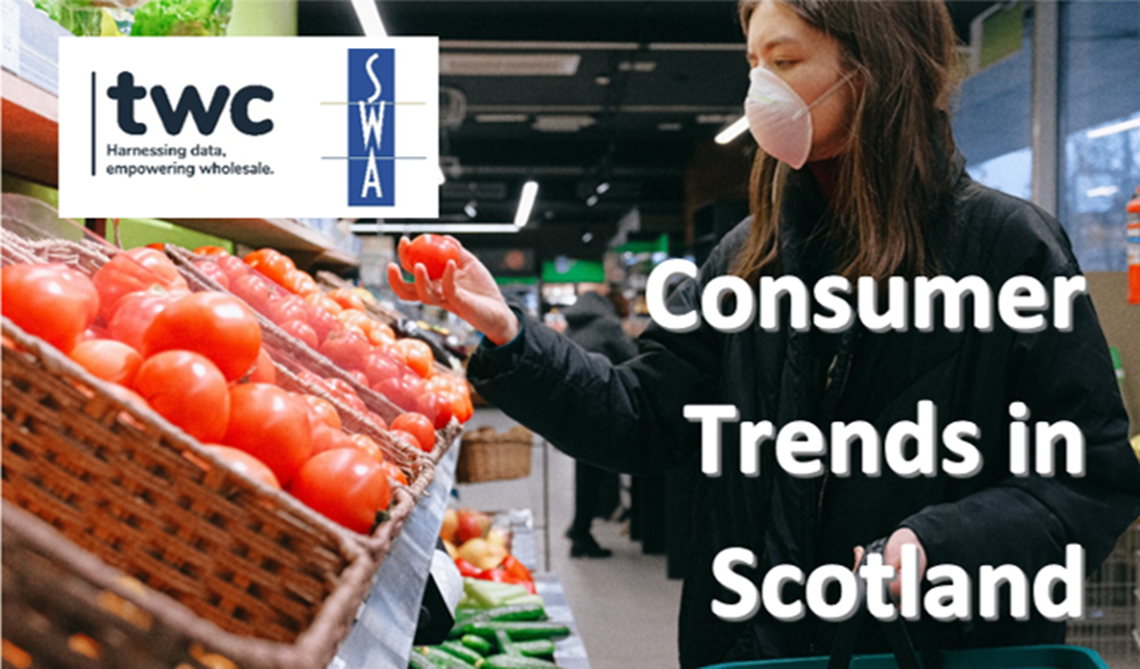SWA launches Consumer Trends in Scotland report

The Scottish Wholesale Association hosted a webinar on 14th December unpicking consumer trends in Scotland and specifically to understand whether sustainability is influencing purchasing decisions – and the likely impact on the wholesale sector.
The webinar for SWA members was supported by data and digital experts, TWC, who shared findings from their own research programme – TWC Trends – as well as Scotland-specific findings based on an increased sample of Scottish consumers, commissioned by SWA.
The research showed that almost three-quarters of Scottish consumers agreed that they are concerned about environmental and sustainability issues and unsurprisingly a similar proportion say they are more concerned now than they were three years ago.
Sustainability already influences where consumers shop for groceries – 38% of Scots agree with this statement and this is going to rise in importance as 50% of those asked said it will influence where they shop more in the future.
Tom Fender, development director of TWC said: “Increasingly, consumers are voting with their pockets. It’s now much less about offsetting carbon footprints which doesn’t go far enough and let’s face it, there aren’t enough trees in the world to go round – it’s about taking carbon out of the business completely and that means adopting the principles ‘reduce, recycle, reuse’.”
“It’s a widely held belief that there will be more plastic in our oceans than fish by 2050 and it’s heartening that the SWA is helping its wholesale members to take sustainable issues very seriously while looking to make a real difference to help retailers and operators meet consumers' needs and aspirations.”
The SWA already supports its members with its Decarbonisation Project, the first phase of which has quantified the emissions produced by the wholesale sector, to set out the scale of the challenge of the transition to net zero.
Colin Smith, chief executive of the Scottish Wholesale Association said: “This research supports SWA’s activities in helping wholesalers decarbonise their business and increase their range of locally-sourced products. We know this is particularly important to Scottish consumers, supported by the data that showed 64% agreeing that they try to buy locally-sourced products when they shop for groceries – which is higher than for the UK overall.”
He continued: “This means considering elements such as 20-minute neighbourhoods and building on local provenance and sourcing. This extends further than products on shelves – it means recruiting and growing local talent and supporting communities in their widest sense.
“Scottish consumers were vocal about putting their money where their mouth is as to where they shop and 71% agreed that they think food retailers who don’t take sustainability issues seriously are likely to lose out in the future.”
“For the SWA and our members, it’s important that the wholesale supply chain, delivering into those retailers, is focused on our own sustainability credentials.”